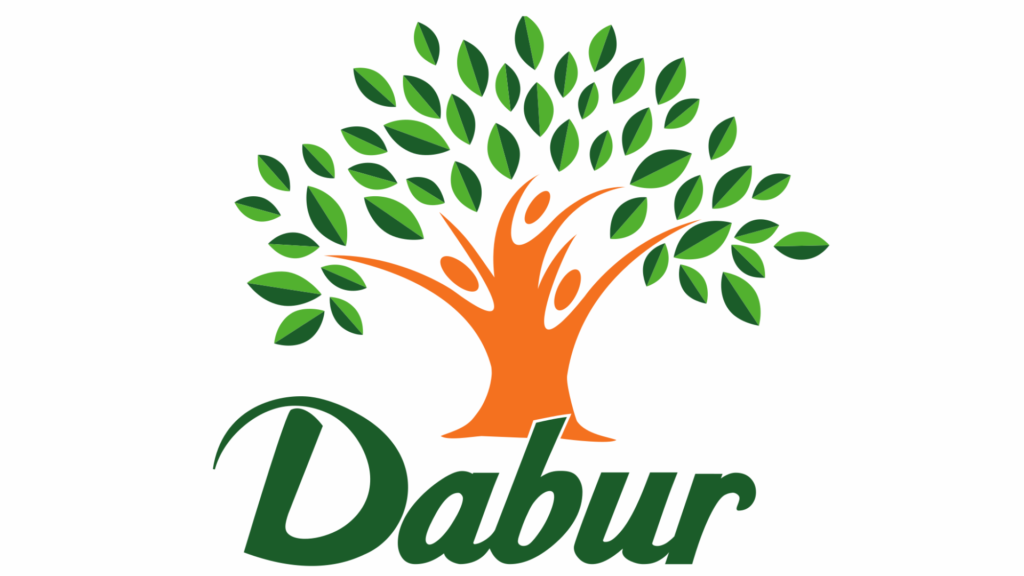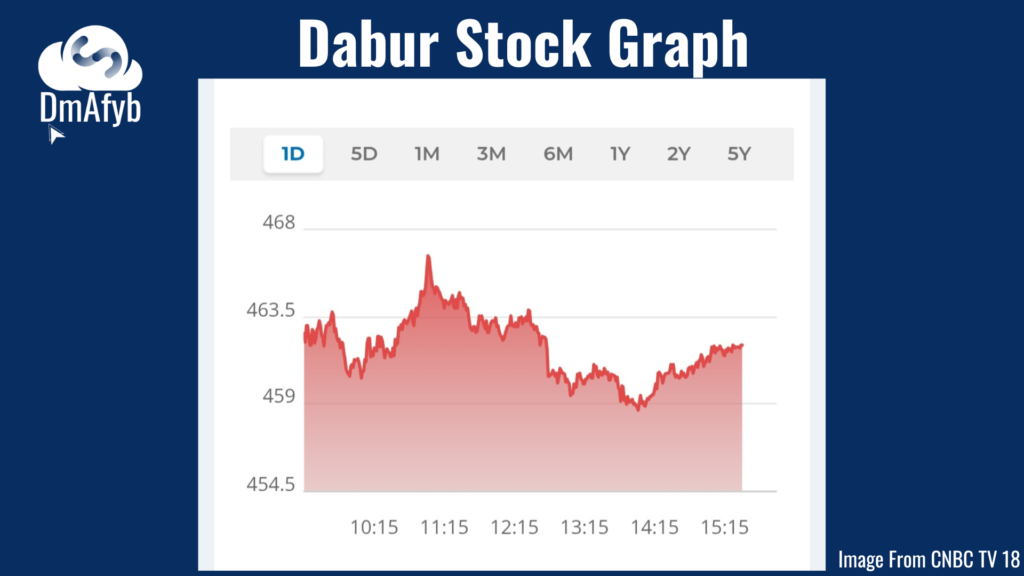On 3 April, leading FMCG company Dabur India’s share price saw a massive drop of 7%, leaving investors and market analysts worried. But what was the reason for this sudden fall? Was it due to weak financial results, rising competition or broader market trends.
For Investors This Fall Raises Critical Questions: Should they hold, buy or Sell? For businesses, especially those connected to Dabar, the concern is will this impact their revenue and growth? And for the FMCG Sector is this a sign of the biggest market challenges?

In this blog, we’ll break down the reasons behind this stock market dip, analyse which companies will be affected, and explore strategies businesses can adopt to stay resilient. Let’s dive in!
Companies Directly Affected by Dabur’s Share Price Drop
Impact on FMCG Competitors
When a major player like Dabur experiences a Significant stock dip it often triggers sector wide reaction. Competition like Hindustan Unilever, (HUL) ITC marico, emami, and patanjali witness investors apprehension, leading to stock volatility.
For instance following Dabur’s recent Performance update, HULs Shares Declined by approximately 3.36% reflecting the market sensitivity to such news.
Effect on Suppliers and Raw Material Providers
Dabur Extensive Products line Relies Heavily on suppliers of Honey, Herbal extracts, and packing materials. A Downturn in Dabur performance can lead to reduced order volumes directly impacting these suppliers’ revenues.
For example, Dabur Honey, a flagship product sources extensively from local beekeepers. A decline in honey sales could adversely affect these suppliers livelihoods.

Consequences for Retail and Distribution Networks
Supermarkets, wholesale, and e-commerce platforms that stock Dabur products might experience decreased sales, leading to inventory pile-ups and cash flow challenges. This Scenario can strain relationships and retailers to diversify their product offerings to mitigate risks.
Indirect Impact on Stock Market & Economy
Mutual Funds & Large investors Assessing the impact
In February 2025, 97 mutual funds purchased Dabur Shares while 33 opted to sell, resulting in a net change of 313,666 shares. Notably, the UTI Value Fund maintained its holding of 2.5 million Shares Representing 1.38% of its portfolio.
Such Fluctuations can influence the returns of these funds, potentially affecting the portfolios of individual investors.

Stock Market Sentiment: A Cautionary Signal for the FMCG Sector?
Dabur Stock Performance often serves as a barometer for the broader FMCG Sector. The Recent Decline Has prompted analysts to question whether this is an isolated incident or indicative of a larger trend.
Factors Such as muted revenue forecasts and global market performance have contributed to this apprehension.
Consumer Behavior Shift: Potential Migration to Alternative Brands
A Dip in Dabur Market Performance could lead consumers to explore alternative brands, especially, if perceptions of quality or value are influenced by the companies financial health.
Competitors might seize this opportunity to capture a larger market share by emphasizing their stability and product offerings.
How Can Other Companies Protect Themselves?
Portfolio Diversification: Reducing Dependence on a Single Brand
Relying heavily on a single product or brand can expose companies to significant risks. Diversifying the product portfolio allows businesses to tap into multiple market segments, mitigating potential downturns in any one area.
For instance, ITC Limited has expanded beyond its traditional tobacco products into sectors like packaged foods, personal care and stationery, thereby broadening its revenue streams and reducing dependency on a single market segment.
Cost & Supply Chain Optimization: Enhancing Efficiency
Optimizing The Supply chain is Crucial for cost reduction and improved efficiency. Implementing advanced logistics solutions, renegotiating suppliers contracts, and adopting technology-driven inventory management can lead to substantial savings.
Building a Stronger Brand Identity: Gaining Consumer Trust
A Strong Brands Identify Foster consumer Loyalty and differentiate a company in a competitive market. Investing in consistent branding, quality assurance and engaging market campaigns can solidify a company’s position. For example, Hindustan Unilever Limited (HUL) has maintained market leadership by continuously innovating and adapting its branding strategies to resonate with Indian consumers.
Strategic Investments & Market Positioning: Seizing Growth Opportunities
Proactive investments and strategic market positioning can turn potential threats into opportunities. Companies like Nestle India have committed substantial investment to expand their production capacities and strengthen their market presence, demonstrating confidence in long-term growth prospects.
Also Read This
How To Promote FMCG Products Online & Offline Marketing With Full Strategy
Which challenges will the FMCG face in the next 5 years?
How to Increase FMCG Product Sales: A Step by Step Practical Guide
How Can Dabur Recover? Future Outlook & Investor Advice
Will Dabur bounce back, or is this a long-term decline?
The recent dip in Dabur stock can be attributed to Factors such as inventory corrections and weaker than expected revenue growth. However, the company’s strong market presence and Strategic initiatives suggest potential for recovery.
Recovery strategies: Expansion, innovation, and digital transformation.
Dabur is actively pursuing strategies to regain momentum.
Expansion:
The company is enhancing it’s rural distribution network, aiming to tap into the growing consumer base in these areas.
Innovation:
Dabur continues to invest in research and development, launching new products to meet evolving customer preferences.
Digital Transformation:
Use Digital Technologies, Dabur is Streamlining operations and improving customer engagement.
Investor strategy: Buy, Hold, or Sell?
Market Analysts offer varied perspectives:
Buy:
Some Experts view the current dip as a buying opportunity, citing Dabur’s strong fundamentals and growth strategies.
Hold:
Others recommend holding the stock, awaiting Clearer signs of sustained recovery and market stability.
Sell:
A Few analysts advise caution, suggesting that investors monitor the companies performance closely before making further commitments.
Conclusion:
What’s Next for FMCG Stocks?
Daburs 7% Stock Decline has created a ripple effect across the FMCG Industry. Major competitors like HUL Marico ITC and Emami are now Under investors’ scrutiny. Suppliers, distributors and mutual funds with heavy Dabur exposure are also feeling the heat.
So What’s next For Investors and businesses? the FMCG Sector remains strong but market fluctuations are inevitable. Investors should focus on Long term Stability portfolio diversification and identifying undervalued stocks. Businesses must adapt by strengthening their brands presence, diversifying their product lines and optimizing the supply chain to withstand market shocks.
What’s your opinion on Daburs Stock fall? Do You Think its a temporary dip or a long-term concern? Drop your thoughts in the comments!
Looking To Boost Your Brand with Influencer Marketing? Our agency connects businesses with top influencers to enhance their online presence and drive sales. Get in touch today.
